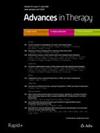Is COVID-19 Still a Threat? An Expert Opinion Review on the Continued Healthcare Burden in Immunocompromised Individuals
Abstract
Coronavirus disease 2019 (COVID-19) caused by the severe acute respiratory syndrome coronavirus 2 (SARS-CoV-2), has had a profound global impact. The emergence of several variants during the pandemic has presented numerous challenges in preventing and managing this disease. The development of vaccines has played a pivotal role in controlling the pandemic, with a significant portion of the global population being vaccinated. This, along with the emergence of less virulent SARS-CoV-2 variants, has led to a reduction in the severity of COVID-19 outcomes for the overall population. Nevertheless, individuals with immunocompromising conditions continue to face challenges given their suboptimal response to vaccination and vulnerability to severe COVID-19. This expert review synthesizes recent published evidence regarding the economic and human impact of COVID-19 on such individuals. The literature suggests that rates of hospitalization, intensive care unit admission, and mechanical ventilation use were high during the pre-Omicron era, and remained high during Omicron and later, despite vaccination for this population. Moreover, studies indicated that these individuals experienced a negative impact on their mental health and health-related quality of life (HRQoL) compared to those without immunocompromising conditions, with elevated levels of anxiety, depression, and distress reported. Further, these individuals with immunocompromising conditions experienced substantial costs associated with COVID-19 and loss of income during the pandemic, though the evidence on the economic burden of COVID-19 in such individuals is limited. Generally, COVID-19 has increased healthcare resource use and costs, impaired mental health, and reduced HRQoL in those with varied immunocompromising conditions compared to both those without COVID-19 and the general population—underscoring the importance of continued real-world studies. Ongoing research is crucial to assess the ongoing burden of COVID-19 in vaccinated individuals with immunocompromising conditions who are still at risk of severe COVID-19 outcomes to ensure their needs are not disproportionately worse than the general population.

 求助内容:
求助内容: 应助结果提醒方式:
应助结果提醒方式:


